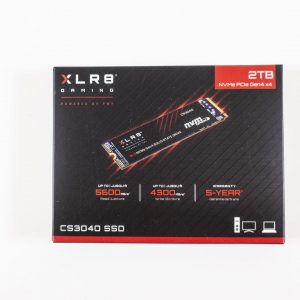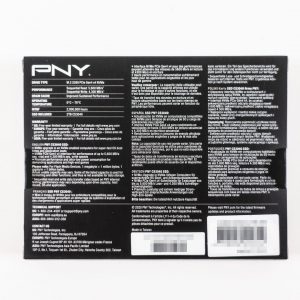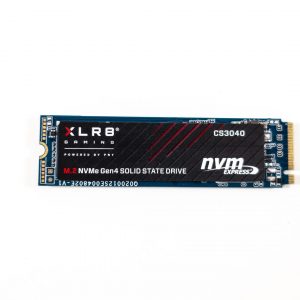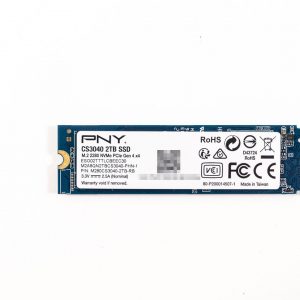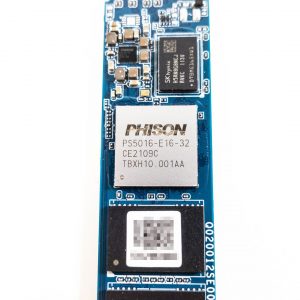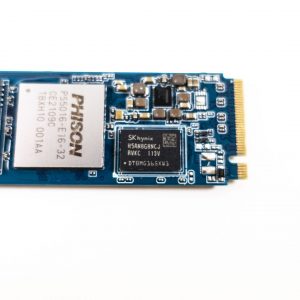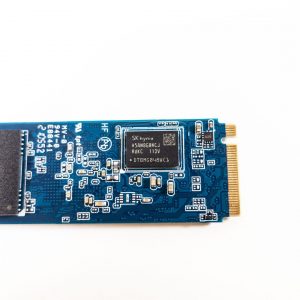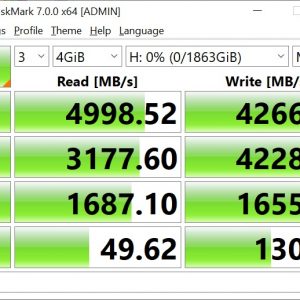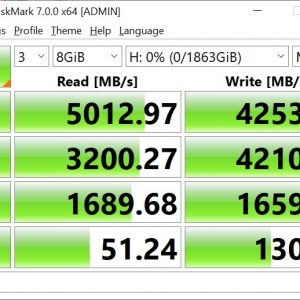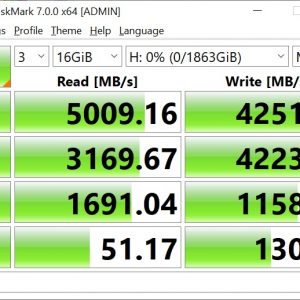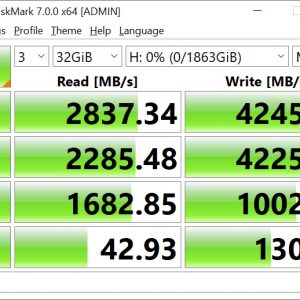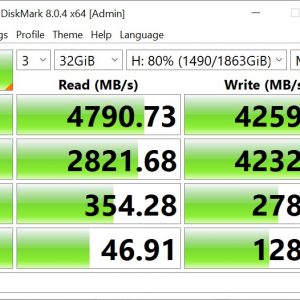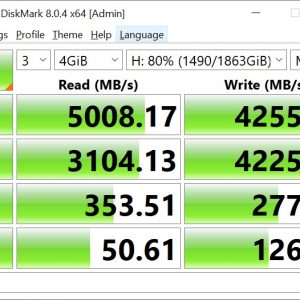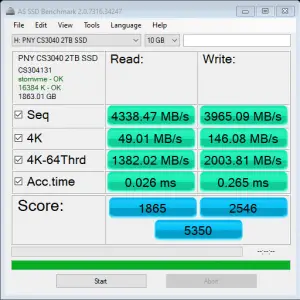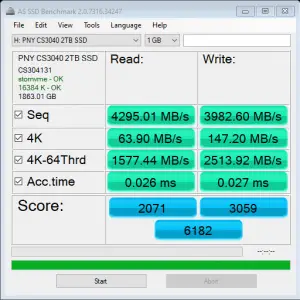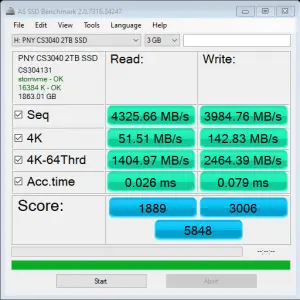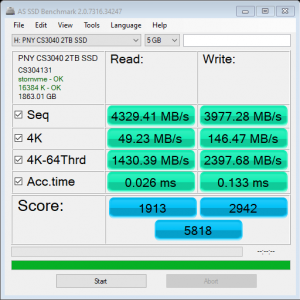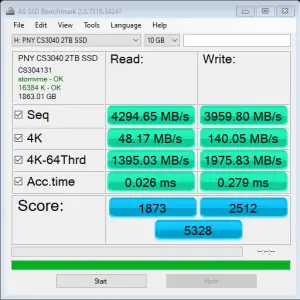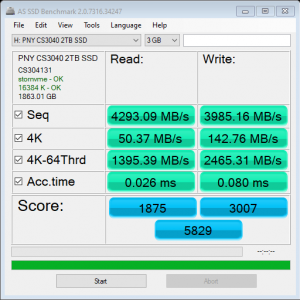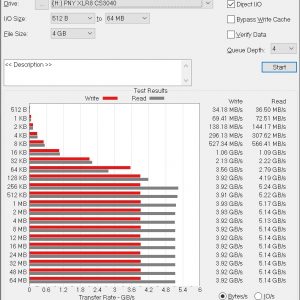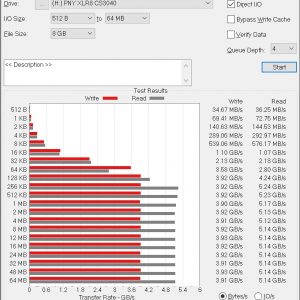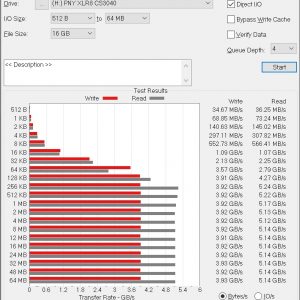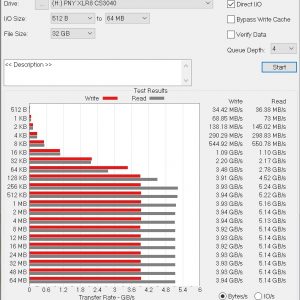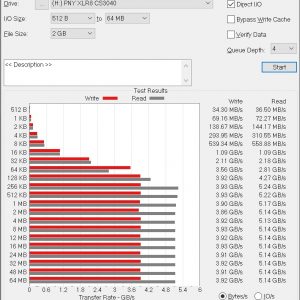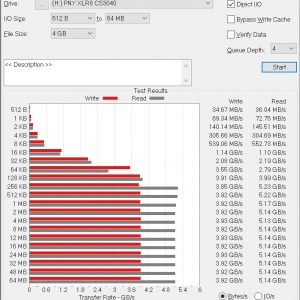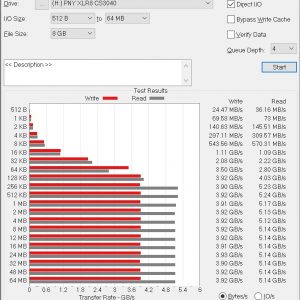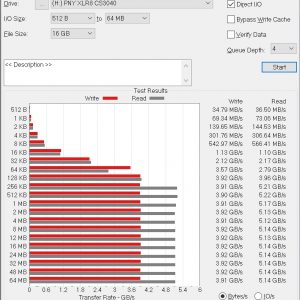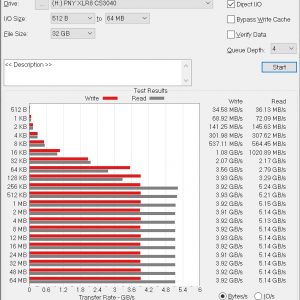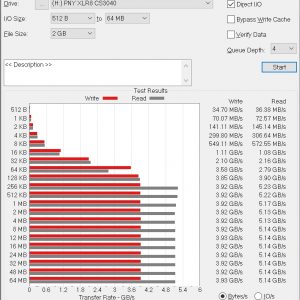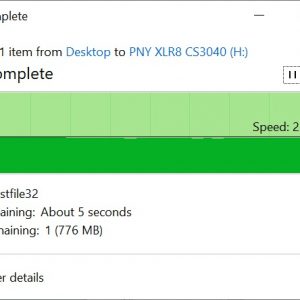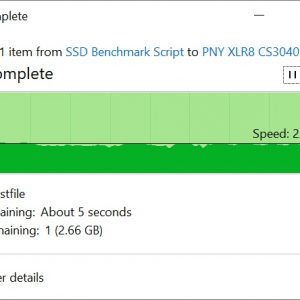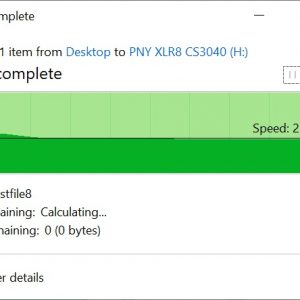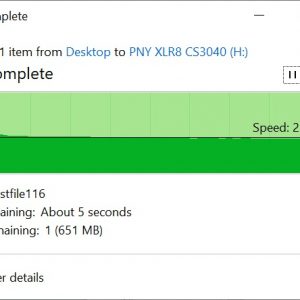While you can definitely see more PCIe 4.0 SSDs available in the market now, it is still not as common as PCIe 3.0 SSDs as it will require both CPU and motherboard to be able to support this feature. It is, of course, a worthy investment if you’re into high-speed storage devices for your content creation work and this time, we’ll be taking a look at the XLR8 CS3040 M.2 NVMe SSD from PNY in this review. So without any further ado, let’s take a look at the XLR8 CS3040 M.2 NVMe SSD and see what kind of performance we can expect from it.
Specifications
| Interface | PCI-Express 4.0 x4 |
| Form Factor | M.2 2280 |
| Total Capacity | 500GB, 1TB, 2TB, 4TB |
| Warranty | 5-years limited warranty from PNY |
| NAND | 3D TLC Toshiba BiCS4 |
| External DDR Cache | DDR4 2GB |
| Sequential Read Speed | Up to 5600 MB/s |
| Sequential Write Speed | Up to 3900 MB/s |
| Random Read IOPS | NA |
| Random Write IOPS | NA |
| Meantime between failure (MTBF) | 2 million hours |
| Power Consumption (Active) | NA |
| Power Consumption (Idle) | NA |
| Temperature (Operating) | 0°C to 70°C |
| Temperature (Storage) | -40°C to 85°C |
Unboxing
The XLR8 CS3040 ships in a standard compact box like most of the decent M.2 NVMe you’ll find in the market, without any gimmicky marketing message of course. You won’t find the full technical details on any part of the box but at least they’ve included the numbers that most users will want to see, which is the sequential read and write speed of the SSD itself.
According to the official product page, the XLR8 CS3040 is available in two different variants, one that includes a heatsink and one that only comes with the SSD alone, which is the one we have right here. As we’ve seen bare PCIe 4.0 SSD has gone up to 70°C without minutes right after we started the write benchmark test, you will want to attach a heatsink to it to ensure the temperature stays under control.
Under the label sticker, we can see some familiar components on the XLR8 CS3040, especially the Phison PS5016-E16 controller that is commonly seen on PCIe 4.0 SSDs. You’ll also find the KIOXIA (also known as Toshiba in the past) TABHG65AWV 96-layers BiCS4 3D TLC NAND, two on each side which totals up to 2TB. For the cache, two SK Hynix H5AN8GNCJRVKC DDR4-2133 DRAM chips can be spotted on both sides of the PCB, which gives it a total of 2GB on the DRAM cache.
Test System Setup
| CPU | AMD Ryzen 9 3900X |
| Motherboard | GIGABYTE X570S AORUS MASTER |
| Memory | Kingston FURY Renegade DDR4 RGB 16GB (2x8GB) |
| Graphics Card | PowerColor Red Devil Radeon RX 6600 XT |
| Power Supply | Cooler Master V1200 Platinum |
| Primary Storage | CORSAIR Force Series Gen.4 PCIe MP600 2TB NVMe M.2 SSD |
| Secondary Storage | WD Black 6TB |
| CPU Cooler | Cooler Master MasterLiquid ML360R RGB |
| Chassis | Streacom ST-BC1 Aluminium Open Benchtable |
| Operating System | Windows 10 64bit |
Synthetic Benchmarks
CrystalDiskMark
Developed by a Japanese coder Hiyohiyo, CrystalDiskMark is one of the most frequently used SSD Benchmark utilities to measure SSD’s read and write performance.
AS SSD Benchmark
Widely used SSD benchmarking utility that uses incompressible data to simulate the worst possible scenario for an SSD, thus giving a much lower sequential read and write speed result than manufacturer stated by as a result of the heavy workload.
ATTO Disk Benchmark
The most frequently used benchmarking utility by many manufacturers for performance specifications. As ATTO Disk Benchmark uses compressible data rather than incompressible data, it results in higher benchmark scores.
File Transfer Speed Test
For this test, we’re using our test data set from 2GB to 32GB to see how well the XLR8 CS3040 can handle with its total capacity filled up to 80%.
Although the sequential read performance from the synthetic benchmark is a little off from the official maximum numbers, the write performance is somewhat higher. Thanks to the 2GB worth of DRAM cache, the write performance is still going strong even after the drive is filled to 80% of its maximum capacity, show almost no signs of performance drop throughout the file transfer test. We’ve also noticed that its write performance is also faster than some of the PCIe 4.0 SSD from our past data, but a proper heatsink is definitely a must.
Without a heatsink attached, the bare SSD will easily hit 70°C minutes after the test started. We didn’t notice any significant impact on the performance so far but attaching a reasonable heatsink, even the one that comes with your motherboard will do as long it’s taking heat off the components on the SSD. For our case, the heatsink that comes together with the X570S AORUS MASTER did a pretty good job to cool down the XLR8 CS3040, shaving off almost 20°C from the highest temperature we’ve observed with the bare SSD.
Verdict
The only concern here for the bare XLR8 CS3040 is none other than the thermals, which is pretty much the same for most of the PCIe 4.0 SSD that comes without a heatsink – you will need a dedicated heatsink for the SSD to operate under a reasonable temperature range. Though that’s not really something to worry about as most motherboards nowadays will usually include at least one heatsink on the M.2 SSD slots, especially the ones that support PCIe 4.0. In a very unlikely case that the motherboard included heatsink isn’t performing as intended, the model with a pre-installed heatsink is probably a much better option to consider, or perhaps, just get a reasonable 3rd-party heatsink that can get the job done.
Despite the limited information on their official website, the performance numbers we can see from our tests show that the XLR8 CS3040 is a pretty reasonable contender in the PCIe 4.0 SSD market. Currently, there are two options available for this model, one with a heatsink and one that doesn’t, users can choose between the models that fit the best for their system. As it has been confirmed that the XLR8 CS3040 with heatsink will not be available in Malaysia for now, you’re left with only the bare XLR8 CS3040 2TB which is priced at RM 1219 on PNY’s official store. If we compare it to other locally available options with similar specifications, the price is totally justifiable.
Pros
- Significantly faster than the current mainstream PCIe 3.0 SSDs
- Comes with up to 2GB DRAM cache
- 5-year warranty from PNY
Cons
- The XLR8 CS3040 with heatsink is not available in some region



